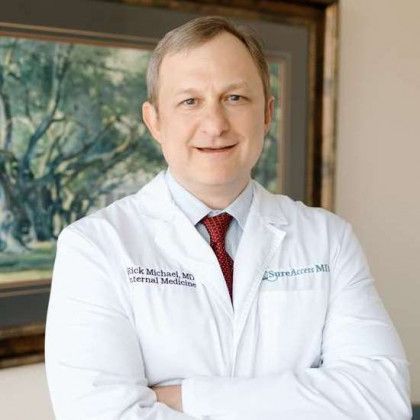The Incredible Human Microbiome

“All Disease Begins in the Gut.”
Hippocrates, approximately 2500 years ago
Hippocrates of Kos is a well-known Greek physician who lived in the classical period from approximately 460 BC through approximately 370 BC. He is considered one of the most outstanding figures in the history of medicine. Heck, every medical student still recites the Hippocratic Oath at graduation and every practicing doctor aspires to abide by it in their practice of medicine. Hippocrates is attributed the above quote and was apparently ridiculed to some extent during his life for saying it. Oh, if he could see where medicine has arrived approximately 2,500 years later, he would feel affirmed and excited about his beliefs about our gut.
Trillions of microorganisms, termed the microbiome, reside on and in the human body including in/on the GI tract, oral cavity, nasal cavity, vagina, placenta, and skin. A microbiome is defined as the collection of microbial genomes, and a microbiota is defined as the collection of microbial organisms. The gut microbiome is thus defined as the collection of microbial genomes inhabiting the GI tract. The gut microbiota consist of bacteria, archaea, fungi, yeast, protozoa, and viruses and represents a huge variety of species and functional genes. How many trillions of microorganisms actually reside on the human body has been a source of debate and research this past decade. It was previously thought that microorganisms living on and in the human body outnumbered the cells in our body by 10:1, but now researchers think that ratio is closer to 1:1. More impressive is that the human body expresses about 20,000 genes while the gut microbiome expresses about 3.3 million genes.
This illustrates the complexity of the gut microbiome and the potential for causing and treating disease states. Most physicians practicing today have been taught extensively about our cells (and thus our tissues and organs) but have little knowledge and expertise about our body’s microbiota and microbiome.
I can argue that every physician practicing today should think about the whole-body, and especially the gut, microbiome and microbiota on a daily, if not per patient, basis. Would this patient’s medical condition(s) benefit from a healthier gut microbiome? Will my treatment positively or negatively affect this patient’s gut microbiome? We should additionally strive for educational techniques and tools that can make our patients aware of how important their whole-body and gut microbiomes are to their well-being.
The diversity of the microbiota is present both within and between individuals, with each human being harboring a unique microbial community. The majority of this living community resides in the colon and is called the gut microbiota and creates the largest part of the gut microbiome.
The evolution of the gut and whole-body microbiomes is also beyond interesting. A human being’s physical and emotional stressors, their local environment (and whether they roll around in the dirt carefree or live in a house where mom and dad wipe down every fomite and child’s hands at every opportunity), their dietary habits, their medications (especially recurrent exposure to necessary and unnecessary antibiotics), and their stage in their lifecycle all affect how the gut and whole-body microbiomes evolve throughout one’s lifetime. We are literally working on a daily basis as humans to maintain our gut and whole-body microbiomes as close to its preferred balance of microbiota as possible.
I have no idea where this topic will evolve over the next 5-10 years. I do think we will see actionable personalized testing for determining an individual’s gut and whole body microbiota that will lead to us recommending certain food intake and/or tailored probiotic intake. Not surprisingly, my other favorite Hippocrates quote is “Let food be thy medicine and medicine be thy food.” It can be simple if you let it be simple. We are the sum of what we eat + our exercise habits.


